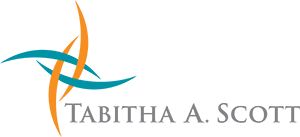Use these 3 steps in your year-end review to get the job you want!
A recent Gallup study showed 85% of Americans are unhappy in their jobs. They want to try something else but are paralyzed at the thought of the unknown or losing the security they have now. But it doesn’t have to be that way! Following your passion to land a fulfilling role doesn’t have to be done in one fell swoop, with your entire livelihood hanging in the balance. Stop cruising passively through the daily drudgery and start driving purposefully towards the career of your dreams with these 3 simple steps.
1. Listen to your intuition to discover your passion. Many ultra-successful billionaires attribute their success to intuition, like Richard Branson, Oprah Winfrey, and Elon Musk. Recent studies released in the Harvard Business Review also show that following our passion increases the likelihood of success. This connection to intuition can make you happier in your current job or identify where to look for the next one.
Most people overthink tapping into their intuition, becoming frustrated that they cannot “hear” it. They try to identify an impeccable career choice to satisfy them for a lifetime. The Bureau of Labor Statistics, however, shows the average time in a job today is only 4.6 years—3.2 years if you’re under 35 years old. So, stop worrying about finding the “perfect” solution and start paying attention to the way you feel about each aspect of your current job.
To discover direction from your intuition, notice the tasks that feel good. What are you doing when you catch yourself subconsciously humming or smiling? What brings on a burst of anticipation or excitement? It could be an idea, an activity, mentoring others, a special interest, or even taking a break. This intentional act of identifying what inspires you refocuses your energy on things you’re passionate about and shifts you from passively cruising along into actively noticing your surroundings.
2. Set a waypoint. Studies show people don’t take the risk of changing their current role because they fear the unknown. They are trapped by pleasing, perfection, and playing the game…You should make sure the new job doesn’t end up being worse. You should be young enough, should be experienced enough, and should be current on all the latest technologies. I call those fears the Should Monster, and when we give into it, we end up “shoulding” on ourselves instead of moving forward.
Mitigate fears by setting waypoints at your pace. A waypoint is a stopping point along a journey, and it gives you a short-term way to follow your intuition while leading towards a more desirable destination. Perhaps start with one each month, then increase to one each week over time and with clarity. One way I used waypoints in my career is to leverage weekly “touch base” meetings, the monthly update process, or semi-annual job reviews as an opportunity to ask for more of what energized me.
Your role doesn’t have a formalized meeting or update process outside of year end reviews? Most of mine didn’t either, so I invented them. I’ve yet to meet a leader who didn’t appreciate a relevant, concise update. Updates became opportunities to weave in and ask to do more of the fulfilling activities over time. Changing direction, even a few degrees at a time, can point you towards an entirely different destination over a career.
3. Take the risk! I often ask this question when making decisions that involve risk, What’s the worst thing that can happen? It was typically something like upsetting my boss, losing a job, or looking stupid. It also worked well with listening to my intuition—If I follow what this illogical feeling is telling me, what’s the worst thing that can happen?
It takes a lot of courage to believe in yourself, to stand up for your own needs and wants, and to believe that you have the power to shape the future you want. But ask yourself, “What’s the worst thing that can happen if I start setting waypoints and learning from them?” Remember rejection of our ideas helps us reach our goals because it shows us what doesn’t work, allowing us to redirect focus to other possible alternatives. Viewing failure as a positive, natural part of progress, rather than something negative, is a powerful way of getting closer to happiness.
For example, one role I had was managing utilities for a portfolio of homes. For the most part, it was pretty dull. I felt jazzed up, however, each time I learned about solar power. I began studying it in earnest, after putting the kids to bed at night, to learn how it may help my employer. Instead of leaping into an entirely different role, I used monthly updates as waypoints to weave in new ideas and benefits about trying it on our homes. Over time, through a series of these waypoints, I learned a lot about how solar could make our company more profitable. It took years to get our first solar development, and during that time my role shifted away from utility billing and towards renewables—a job about which I felt passionate.
Get out of the passenger seat on your commute and take off the cruise control. It’s time to actively navigate towards a career you’re passionate about by listening to your intuition, learning from the waypoints, and driving full speed ahead.
About the Author: Tabitha A. Scott is an international executive, keynote speaker and author of award-winning book, Trust Your Animal Instincts: Recharge Your Life & Ignite Your Power. Tabitha led efforts in creating the world’s largest solar-powered community and was recognized for her work with innovation, technology, and behavior change by the White House. A Kentucky native, she lives in Nashville, TN.

